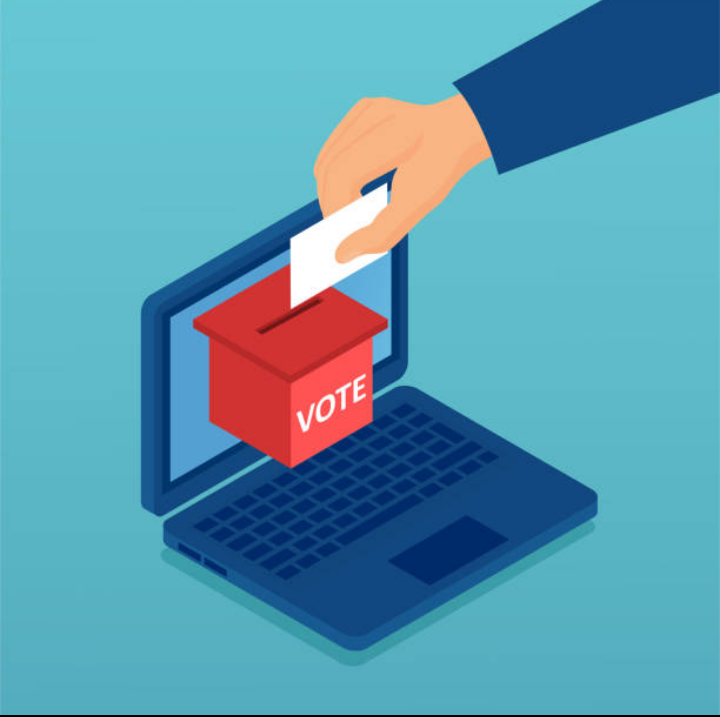In the words of George Patton “A good plan, violently executed now is better than a perfect plan tomorrow.” Hold these statements to heart most importantly “violently executed” think more of the execution than the violence that comes with it as it would be very useful as you read this piece.
To vote is to make an official choice for or against someone or something by casting a ballot. Research shows that General elections were held in Nigeria for the first time on 20 September 1923. The act of voting has also had its ups and downs. The first wave of the Feminists movement saw women in the 19th century in the United States of America demanding the right of women to vote. The universal suffrage movement started in the 19th century to the 20th century.
However, because voting has gone through various changes, development, and the advent of technology. One might think the issues experienced with the use of technology in voting virtually or electronically can be avoided. If we are being factual it can be avoided but, speaking of its practicality it can not be avoided without effective planning.
Nothing beats effective planning and this is not to say circumstances of life do not push against what has already been planned but with effective planning, one can maneuver such challenges. Recently on campus, we have seen many electoral committees introducing the use of online voting to vote in student executive members beit in the faculty or departmental level.
From the highest electoral committee in the University under the students union, the faculty, and departmental level one thing common in their activities this year is the introduction of online voting which is a welcome development. This we could say might have been influenced by the new normal and the adopted mode of teaching which was earlier only through virtual means.
Online voting on campus came with its challenges (in terms of trust) that caused a rage among students who expected more. This editorial still begs the question why hasn’t the online voting platform been perfected? our answer will only take us back to this very word ‘planning’. Planning is key but before we even dissect the word ‘planning’ and talk about the effectiveness of planning let’s try understanding what caused the rage and displeasure over voting online. It’s best to ask what caused the rage?
The department had its elections Wednesday, 29th September 2021 this election saw AASAITES vote both online and physically. Voting online entails accreditating before election day. On the election day, voters were required to filling an electronic ballot sent via the email address provided during accreditation. This came with its issues whereby students claimed to not have gotten electronic ballots either in their email boxes or spam folders. On another hand, at the Faculty level (Science), elections were postponed to a later date (a week after) after it was slated to hold Monday, 11th October 2021. The voters (i.e FASSAITES) in this election complained bitterly of not getting the password to vote, a glitch on the voting platform, and also what they called ‘multiple voting’.
You can only imagine the level of rage and anger from those who were determined to exercise their franchise as students of the department and faculty. These challenges also question the authenticity, credibility, and reliability of online or electronic voting. Could all these have been avoided? Electronic voting itself has had its fair share of doubt by the Nigerian populace both online and offline. In north-western Nigeria for example, the Governor of Kaduna Nasir el-Rufai made it known and categorically stated in a statement that “We don’t believe in cheating or rigging elections but also we don’t want other parties to cheat us, and that was why we encouraged the Kaduna State Independent Electoral Commission to come up with a fool-proof voting process.” – Nasir el-Rufai
What this shows is that it takes a lot to trust electoral officers. In the University setting, the level of trust is also lacking but will effective planning and a lot more transparency in the electioneering process regain the trust of students? To effectively plan an election also requires adequate funding on the part of the department or faculty. Are they ready to provide the electoral committee with the necessary resources and the adequate fund to run a stress-free, free, and fair election?
In conclusion, effective planning from everyone involved will lead to a perfectly executed election. If all parties involved see to planning and mapping out how online voting should be done without any glitch or issues arising from the voting platform, this will only prevent salvaging such magnitude of situation and uproar whenever it arises because there was a good plan to start with and the plan has been executed by the electoral committee. We can only hope the parties involved have learned a lesson and plan on doing better when the next elections hold.
